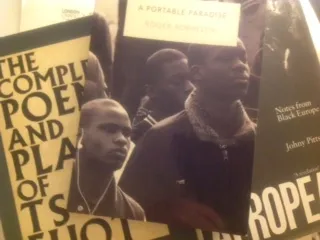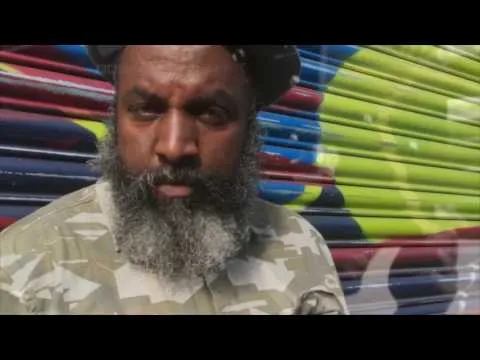
On Monday, I read that Roger Robinson, Caribbean British dub poet, had won the T S Eliot prize for his collection A Portable Paradise.
I read,
the poet John Burnside, chair of the judges, praised A Portable Paradise for “finding in the bitterness of everyday experience continuing evidence of ‘sweet, sweet life’.”' The Guardian
Well, I found that book in the store in the town. I read it in the Lansdowne Arms, weeping hot silent salty tears into my incongruous Prosecco, fizzing quietly as if nothing was wrong.
Visceral, it brought the present sharply up against the past, a past you would prefer not to remember, pretend wasn't there.
There are poems here that broke me and I cried all over again.
Raymond Antrobus, in A Portable Paradise
They broke me, too. Dipping into the Contents Page, laid out like a box of chocolates, I hovered over Fourteen to One and The Boys Light Fireworks on the Ground Floor ...
As the building burned
I tied fourteen pastel
bedsheets into sturdy
knots and climbed out
the window. The fifteenth
sheet was to tie my daughter
to my back as we went down.
Fourteen to One
It was the tragedy of Grenfell, seventy two lives lost through negligence, greed, complacency, disastrous government policies. He had it pat, Roger Robinson, Caribbean British dub poet:
"They are the city of the missing,
We, now, the city of the stayed."
The Missing
"In the lights of mobile phones,
shadows wave makeshift flags, until they no longer wave them
and their sihouette fades to the roaring fiery light.
... Then the swan dive of a few bodies."
Haibun for the Lookers
"The morning after, the streets filled with portraits
of missing people."
The Portrait Museum
"so the prime minister
came, saw and left,
and talked to no one
and shook no one's hand."
"and survivors walk like zombies ..."
Blame
Would I cry, I wonder, if I hadn't had that phone call in the early hours, "It's terrible, Shani, they're throwing their children into the crowd." Would I still break down.
I turn over the pages, seeking, seeking, falling across
"and crackheads walk
with presidential purpose ..." and
"And somewhere up in the tracing paper
squares of light in the towerblocks,
grandmothers dice goat meat and season it
with curry spice and sweat, ..." and
"in the car park a young father whispers
weed smoke about how his life feels,
like that burnt-out car that never moves,
the one with shattered windows
leaving diamond tears in the melting asphalt."
Ashes to Fire
The grandmothers and grandfathers are there, "if I speak of my grandfather/ I am speaking about horse racing" (And If I Speak of Paradise); "So I tell her that my grandmother could curse/ more than any sailor. She could drink rum, too./She outdrank big men and she could gamble on the horses ..." (A Journalist Repeatedly Asks Me about Race in a Poetry Interview)
I move through death, Sade, musicians, artists, to the son "alive/ another day" (Repast), with Grace ensuring "No baby must dead/ wid a hungry belly." (Grace), to, finally, A Portable Paradise.
Grandmother is there with her wise words to "carry it always/ on my person, concealed .../ And if life puts you under pressure,/ trace its ridges in your pocket,/ smell its piney scent on your handkerchief,/ hum its anthem under your breath." (A Portable Paradise)
I turn the book over, slide my hand across the cover.
Even Black Olive is funny (not funny).
I sigh and gather my things, eat the raspberries from the bottom of the glass.
Time for my meeting.
Later, I remember when I first came across Roger Robinson, walking with Anthony Joseph along London's South Bank. It's there and gone. I find New Maps (2017) instead.
